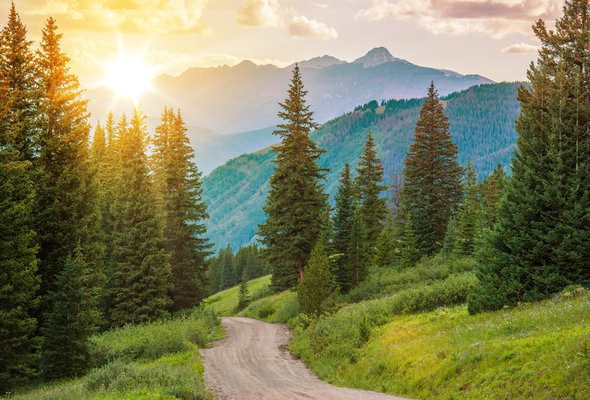Colorado has attracted many new residents who are drawn to the high quality of life in the state. The combination of job opportunities, beautiful weather, scenic views and a culture of wellness has proved irresistible to the Americans who have flocked to the state. Some of the nation’s top financial advisor firms are in the Centennial State. So if you are thinking about moving to Colorado, here are 15 things to know before you go.
A financial advisor can help you put a financial plan into action for your Colorado needs and goals.
1. It’s a Healthy State
Colorado consistently ranks among the healthiest states in the country, and for good reason. With more than 300 days of sunshine each year and easy access to mountains, trails and parks, residents naturally embrace an active lifestyle. Outdoor recreation is part of daily life here, whether it’s hiking after work, skiing on weekends or cycling through Denver’s extensive bike network. The state’s environment encourages movement, and many Coloradans prioritize fitness as part of their identity.
The connection between outdoor activity and wellness is strong in Colorado. Studies frequently show that proximity to nature boosts mental health, reduces stress and promotes longevity, and Colorado’s landscape makes that kind of access easy. From the foothills of Boulder to the forests near Colorado Springs, fresh air and mountain views are never far away. Many communities even integrate wellness into urban planning with trails, open spaces and fitness-friendly amenities built right into neighborhoods.
2. Coloradans Don’t Sit Winter Out
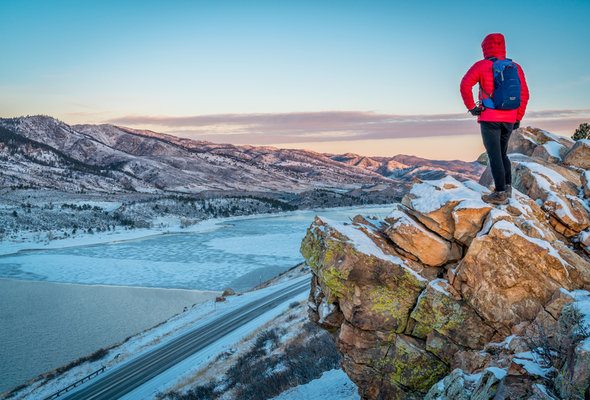
When the snow starts to fall, most Coloradans don’t hibernate, they gear up. Winter is one of the most active and celebrated seasons in the state, drawing residents and visitors alike to the mountains for world-class skiing, snowboarding and snowshoeing. For locals, these cold-weather activities aren’t just hobbies, they’re a way of life that keeps them outdoors and connected to the state’s natural beauty even when temperatures drop.
Rather than seeing winter as a time to stay indoors, Coloradans view it as a fresh opportunity for adventure. The state’s dry climate means the snow is light and powdery, ideal for recreation, and the abundant sunshine makes even cold days inviting. Cities like Denver and Fort Collins maintain an active outdoor culture through winter runs, ice skating and holiday markets, so staying fit and social never goes on pause.
3. Colorado Is a Swing State
Colorado’s political landscape is as diverse as its geography. Once a reliably conservative state, it has shifted toward a more balanced, and at times unpredictable, political identity over the past few decades. Today, Colorado is often considered a swing state, with voters who tend to be more independent-minded than partisan. This mix of political perspectives creates a dynamic civic environment where local and national elections are closely watched.
Much of Colorado’s political diversity stems from its geography. Urban centers like Denver, Boulder and Fort Collins lean progressive, driven by younger populations and a strong emphasis on education, technology and environmental policy. Meanwhile, rural areas and smaller towns tend to hold more conservative values, prioritizing agriculture, energy and land rights. The result is a state that doesn’t always fit neatly into red or blue categories, its politics are shaped by the balance between city life and open range.
4. You’ll Probably Want to Learn to Ski If You Don’t Already Know How
In Colorado, skiing isn’t just a pastime, it’s practically a cultural rite of passage. With more than two dozen ski resorts across the Rockies, from world-famous destinations like Vail and Aspen to more laid-back slopes in Winter Park and Monarch, opportunities to hit the snow are everywhere. Even if you’ve never strapped on skis before, living here makes it almost impossible to resist the pull of powder days, mountain views and the social scene that comes with ski culture.
Skiing can be tough on the budget, though, so make sure you’re not overspending on the sport. When ski season hits, you want to able to hit the slopes with your friends without racking up debt.
5. The Red Rocks Will Blow You Away
Red Rocks isn’t just a concert venue, it’s a geological masterpiece millions of years in the making. The site sits at 6,450 feet above sea level, offering panoramic views of the plains and the Rockies while the ancient rock formations create a natural amphitheater with perfect sound. Over the decades, it has hosted legendary performers from The Beatles to U2, making it a symbol of Colorado’s deep connection to both music and the outdoors.
6. You Can Get in Touch With Your Inner Train Nerd
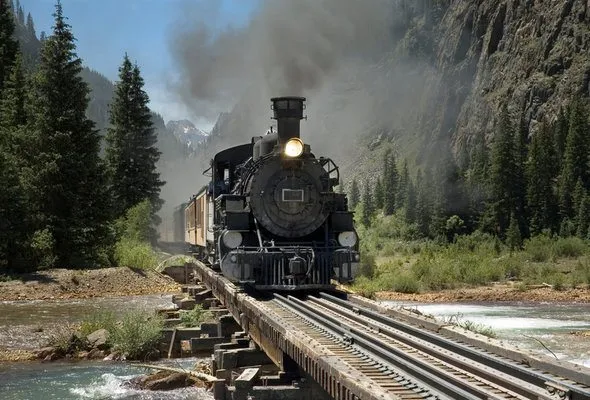
Colorado’s rugged terrain and rich mining history helped shape one of the most fascinating railroad legacies in the country. From narrow-gauge mountain routes to scenic steam engines that still chug through canyons and alpine passes, the state offers a chance to experience travel the way early settlers and prospectors once did. Whether you’re a lifelong rail enthusiast or just curious about Colorado’s past, it’s easy to get swept up in the romance of its railroads.
7. Craft Beer Is Huge in Colorado
If you love craft beer, you’ll feel right at home in Colorado. The state has earned a national reputation as one of the best places for beer lovers, with hundreds of breweries ranging from small mountain-town taprooms to major names like New Belgium and Odell. Beer culture here is woven into everyday life—locals take pride in supporting independent brewers, experimenting with creative flavors and treating a good pint as an art form, not just a beverage.
8. Property Taxes Are Low
One of the pleasant surprises for many new Colorado residents is the state’s relatively low property taxes. Compared with much of the country, Colorado homeowners enjoy some of the lowest effective property tax rates, which can make homeownership more affordable than you might expect, especially given the state’s rising home values in recent years. This favorable tax structure is one of the reasons Colorado continues to attract buyers from across the country.
9. The Altitude Is a Trip
One of the first things newcomers notice about Colorado isn’t the scenery, it’s the air. Much of the state sits at elevations higher than 5,000 feet, and cities like Denver, nicknamed the “Mile High City,” take that quite literally. At higher altitudes, the air is thinner, meaning there’s less oxygen available. For new residents, this can lead to lightheadedness, fatigue or shortness of breath until the body adjusts. It’s a unique part of Colorado life that takes a little time, and a lot of water, to get used to.
10. Coloradans Are Young and Educated
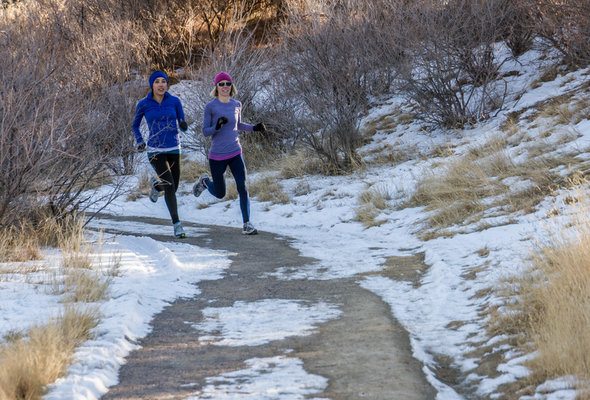
Colorado’s population stands out for being both youthful and highly educated. The state consistently ranks among the top in the nation for residents with college degrees, and its workforce is fueled by a strong mix of young professionals drawn to the area’s booming industries, outdoor lifestyle and progressive culture. This blend of ambition and adventure helps shape Colorado’s vibrant, forward-thinking identity.
11. Average Incomes Are High in Colorado
Overall, Coloradans tend to have high incomes. There are, of course, low-income families and communities, but the median household salary in Colorado was $82,611 in 2020, according to the U.S. Census Bureau. That’s roughly $15,000 higher than the U.S. average in the same year. The cost of living in Colorado is high, too.
Check out our Colorado income tax calculator.
12. Colorado Homes Are Expensive
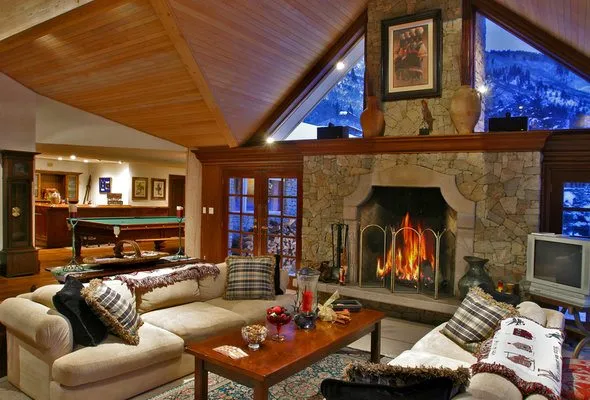
There’s no way around it,buying a home in Colorado can be pricey. Over the past decade, strong demand, limited housing supply and the state’s growing popularity have driven prices sharply upward, especially in and around cities like Denver, Boulder and Fort Collins. Even smaller mountain towns that once offered affordable alternatives have seen property values surge as more people seek scenic living and remote work flexibility.
13. You’ll Probably Spend Much on Gear
In Colorado you don’t need to spend a lot to keep up on the latest fashions, but you might find yourself spending a lot on outdoor gear. That could be gear you use for camping, hiking, fishing or skiing, but it could also mean the coat you wear around town or the boots you use when you’re going to the grocery store.
14. Counties and Cities Can Levy Hefty Sales Taxes
The state of Colorado has a flat sales tax, but counties and cities can – and do – add their own sales taxes on top of the low state rate. Doing some tax-related research before moving to Colorado can help you choose a more affordable place to settle. In some cities, the combined state, county and city sales tax rates top 11.2%.
15. If You Smoke, Know the Rules
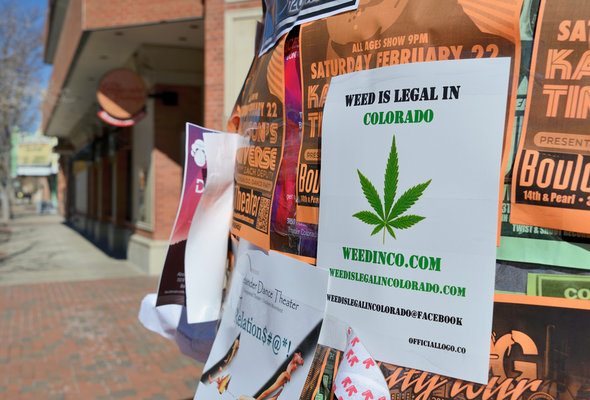
Just because recreational marijuana use is legal in Colorado doesn’t mean there are no rules. You can’t buy weed in every city, and there are restrictions around where you can smoke. If you’re planning to indulge or to get into the marijuana industry after moving to Colorado, take care to stay on the right side of the law.
Bottom Line
Moving to Colorado offers an incredible mix of natural beauty, active living and cultural richness, but it also comes with its own set of realities. From high housing costs and altitude adjustments to an outdoors-focused lifestyle and vibrant communities, life here is as rewarding as it is dynamic. Whether you’re drawn by the mountains, the job market or the craft beer scene, settling in Colorado means embracing both adventure and responsibility. Before making the move, it’s worth taking a close look at your financial goals and cost of living plans.
Tips for Moving to Colorado
- A financial advisor can help you navigate big life changes like a move, or just with identifying and meeting your financial goals in general. Finding a financial advisor doesn’t have to be hard. SmartAsset’s free tool matches you with vetted financial advisors who serve your area, and you can have a free introductory call with your advisor matches to decide which one you feel is right for you. If you’re ready to find an advisor who can help you achieve your financial goals, get started now.
- If you are moving to a new state, it’s a good idea to understand how the change will impact your budget. SmartAsset’s Colorado paycheck calculator can help you determine how living in the Centennial State will impact your take-home pay.
Photo credit: ©iStock.com/welcomia, ©iStock.com/marekuliasz, ©iStock.com/David Morgan, ©iStock.com/jerrynettik, ©iStock.com/Michael Hefferon, ©iStock.com/RiverNorthPhotography
